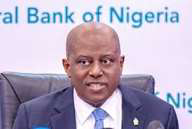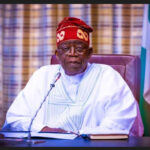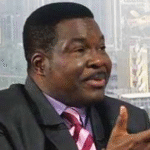Sanusi Decries Culture of Rewarding “Thieves” with Ministerial Positions

The Emir of Kano and former Governor of the Central Bank of Nigeria, Muhammadu Sanusi II, has strongly criticised what he described as the dangerous trend of appointing corrupt and incompetent individuals into Nigeria’s highest political offices.
Speaking at a public forum, Sanusi stated unequivocally that “thieves shouldn’t be rewarded with ministerial appointments,” warning that such practices not only erode public trust but also undermine the nation’s governance structure and long-term development.
The outspoken traditional ruler said leadership positions must not be used as political compensation or patronage for individuals who have contributed little to national progress or who have been involved in questionable activities.
He stressed that rewarding misconduct with high office sends the wrong signal to citizens, particularly to younger generations, and weakens the foundations of public morality.
Sanusi, who has consistently voiced concern over the direction of Nigerian governance since leaving the Central Bank, warned that continued politicisation of appointments is detrimental to institutional integrity. He noted that offices such as ministerial portfolios, top civil service roles, and leadership positions in regulatory bodies must be occupied by qualified and ethical individuals capable of understanding and managing the implications of policy on ordinary Nigerians.
This is not the first time Sanusi has publicly raised alarms over Nigeria’s leadership selection process. In a similar statement made in mid-2023, shortly after President Bola Ahmed Tinubu’s inauguration, Sanusi had cautioned against turning public institutions into instruments of political reward. He called on the president to prioritise merit and competence over loyalty, saying:
“These institutions are not just places for patronage; they are the bedrock of national credibility.”
His latest remarks come amid renewed public scrutiny of several ministerial appointments under the Tinubu administration. In March 2025, former Kaduna State Governor Nasir El-Rufai claimed that some individuals had paid for their cabinet seats, describing the system as a “business enterprise where everything has a price.”
That claim sparked national debate and heightened calls for reforms in the process of federal appointments.
Around the same period, Senator Shehu Sani, a vocal critic of political impunity, characterised President Tinubu’s cabinet as a gathering of “serpents” and “vultures,” a veiled criticism of individuals he believes lack principle but gained office through political manoeuvring or betrayal.
Sanusi’s message continues to strike a chord with many Nigerians who are frustrated by the slow pace of reforms, rising cost of living, and what they perceive as a widening gap between the elite and the governed.
He argued that placing political loyalty above national interest has contributed significantly to policy failures and institutional decay.
“Corruption is not only about stealing money,” Sanusi said. “It’s also about knowingly giving powerful responsibilities to those who have no business being there—those who will misuse the office, fail to perform, or act with impunity because they were not chosen on merit in the first place.”
He added that if Nigeria hopes to escape its current economic and social challenges, it must adopt a leadership culture based on discipline, integrity, and competence—not favouritism or transactional politics.
Though his comments did not name any specific officials, analysts believe Sanusi’s criticism reflects growing concern among policy experts and civic leaders who fear that Nigeria’s public institutions are being weakened by political interference, favoritism, and the recycling of failed politicians.
As political attention begins to shift toward the 2027 general elections, Sanusi’s warning serves as a timely reminder that the quality of leadership appointments will remain central to the credibility of any administration.
His call has already sparked discussions across media platforms, with many Nigerians urging the government to reevaluate its criteria for appointments and put the country’s long-term interests above political convenience.









